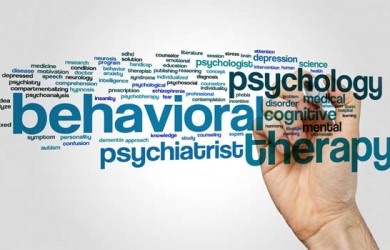How Couples Therapy Can Help: 7 Transformative Ways

Unlock Daily 30-Sec Tips for a Happier Relationship
👉 Subscribe FREEKey Takeaways
Marriage.com AI Quick Summary
Couples therapy, a dynamic process guided by trained professionals, offers invaluable support in navigating the complexities of relationships. This therapeutic approach fosters emotional intimacy, communication, and overall relationship well-being.
From enhancing conflict resolution skills to rebuilding trust and exploring shared values, couples therapy provides a structured space for couples to untangle challenges.
So, how can couples therapy help? Addressing underlying issues and fostering understanding promotes resilience and a deeper connection.
This article discusses the multifaceted benefits of couples therapy, highlighting its potential to not only resolve conflicts but also to cultivate lasting, positive transformations within relationships.
What is couples therapy, and why does it matter
Couples therapy is a specialized form of counseling designed to help couples navigate challenges and improve their relationships. It matters profoundly because it provides a structured environment for partners to address issues, enhance communication, and deepen emotional intimacy.
Through expert guidance, couples explore how their dynamics impact the relationship and learn transformative strategies to foster connection.
By understanding each other’s perspectives and developing effective communication skills, couples therapy can help mend conflicts, rebuild trust, and create a more resilient partnership.
Ultimately, it matters as a proactive and constructive tool, showcasing how couples therapy can help fortify relationships for lasting success and fulfillment.
Understanding the benefits of couples therapy
Couples therapy offers a multitude of benefits, providing couples with tools to navigate challenges and strengthen their bond. Understanding how couples therapy works sheds light on its transformative impact.
Firstly, couples therapy fosters improved communication. Therapists guide partners in expressing thoughts and emotions constructively, enhancing understanding and connection. Through active listening and effective communication exercises, couples learn to navigate differences and build a foundation of mutual respect.
Secondly, couples therapy addresses underlying issues. Therapists help couples explore the root causes of conflicts and dissatisfaction, facilitating a deeper understanding of each other’s needs and concerns. This process is essential in creating lasting solutions and preventing recurring issues.
Thirdly, couples therapy helps build trust. Trust is the cornerstone of a healthy relationship, and therapy provides a safe space for partners to share vulnerabilities and rebuild trust that may have been eroded by past experiences or conflicts.
Furthermore, couples therapy provides tools for conflict resolution. Couples learn strategies to manage disagreements constructively, turning conflicts into opportunities for growth rather than sources of tension. This skill is crucial for maintaining a harmonious relationship over time.
Lastly, couples therapy can be beneficial even when one partner exhibits narcissistic traits. Therapists can address these traits, fostering empathy and encouraging healthier patterns of interaction. While not a cure-all, therapy can help narcissistic individuals develop more adaptive behaviors, contributing to a more balanced and fulfilling relationship.
Does couples therapy address relationship patterns?
Couples therapy plays a crucial role in addressing and transforming relationship patterns. Understanding how couples therapy works unveils its effectiveness in breaking unhealthy cycles and fostering positive change.
One key aspect is the therapist’s role in identifying recurring patterns within the relationship dynamic. Through careful observation and exploration, therapists help couples recognize destructive behaviors or communication patterns that contribute to conflicts.
The transformative power of couples therapy lies in its ability to delve into the root causes of these patterns. By understanding the origins and triggers of problematic behaviors, couples can work collaboratively to break free from negative cycles.
Therapists guide partners in developing new, healthier patterns of interaction, emphasizing effective communication, empathy, and mutual understanding.
This process aligns with the fundamental question of how couples therapy can help. It provides a structured and supportive environment for couples to explore, u+nderstand, and modify their relationship patterns. Through open dialogue and targeted interventions, couples therapy empowers individuals to make positive changes, fostering a more harmonious and fulfilling partnership.
In essence, couples therapy is a dynamic tool that not only identifies detrimental patterns but actively engages couples in reshaping their relationship dynamics for long-term success.
How does couples therapy work?
Couples therapy works by providing a structured, supportive space for partners to explore and address relationship challenges. Guided by a trained therapist, couples engage in open communication, identify patterns, and develop strategies to enhance their connection.
It fosters understanding, promotes positive change, and equips couples with tools for sustained relationship health.
7 key transformative ways couples therapy can help
Couples therapy can be incredibly beneficial for relationships, as it provides a safe and neutral space for couples to address and work through their challenges. Here are 7 key transformative ways that couples therapy can help:
1. Improved communication
Couples therapy helps couples improve their communication skills, teaching them how to express their feelings and needs more effectively. This can lead to better understanding and decreased conflict.
2. Conflict resolution
Couples therapy provides a structured environment for couples to address and resolve conflicts in a healthier and more productive way. Therapists can teach couples effective tools and techniques to navigate and manage conflicts.
3. Increased intimacy
Couples therapy can help couples enhance their emotional and physical intimacy. Therapists can guide couples in developing a deeper connection, improving trust, and fostering a greater sense of intimacy.
4. Rebuilding trust
For couples who have experienced trust issues or betrayal, couples therapy offers a supportive space to rebuild trust. Therapists can assist couples in understanding the root causes of trust issues and guide them in the process of rebuilding trust and healing.
5. Balancing individual needs and relationship goals
Couples therapy helps couples navigate the balance between individual needs and the goals of the relationship. Therapists can assist in creating a stronger sense of partnership and ensuring that both individuals’ needs are acknowledged and met.
6. Addressing past trauma
If one or both partners have experienced past trauma, couples therapy can be an effective way to address and heal from these experiences. Therapists can offer support and guidance on how to navigate the impact of trauma on the relationship.
7. Enhancing overall relationship satisfaction
Couples therapy aims to improve overall relationship satisfaction by addressing and resolving issues. Through therapy, couples can develop a deeper understanding and appreciation for each other, leading to a more fulfilling and satisfying relationship.
Remember, the effectiveness of couples therapy depends on both partners’ willingness to actively participate and commit to the process.
FAQs
Embarking on the journey of couples therapy raises questions. Explore this FAQ for insights on the differences, costs, consent, confidentiality, and navigating reluctance, illuminating the transformative potential within.
-
What is the difference between couples therapy and marriage counseling?
Couples therapy and marriage counseling are terms often used interchangeably, but nuances exist. While marriage counseling may focus specifically on the institution of marriage, couples therapy is broader, encompassing various relationship types. Both share common goals of improving communication and resolving conflicts.
-
How much does couples therapy cost?
Couples therapy costs vary, influenced by location, therapist expertise, and session duration. On average, sessions range from $75 to $200 per hour. Some therapists offer sliding scales or accept insurance, making it crucial to explore options that align with financial considerations.
-
Do I need my partner’s consent to go to couples therapy?
While it’s ideal for both partners to willingly participate, consent isn’t always mandatory. One partner can initiate therapy with the hope that the other may join later. However, mutual willingness often enhances the therapy’s effectiveness.
-
Is couples therapy confidential?
Yes, couples therapy is generally confidential. Therapists adhere to strict confidentiality standards, ensuring that discussions within the therapy room remain private. However, legal exceptions may arise in situations involving harm to oneself or others.
-
What happens if my partner doesn’t want to go to couples therapy?
If your partner is unwilling, it’s essential to communicate openly about your desire for therapy and its potential benefits. Encouraging a discussion about concerns and fears can pave the way for a more informed decision. Alternatively, individual therapy may offer a starting point for personal growth and relationship reflections.
-
How can couples therapy help a narcissist?
Couples therapy can be challenging for a narcissist, as they may struggle with self-reflection and empathy. However, some therapists specialize in treating individuals with narcissistic traits.
Therapy can potentially help by addressing communication patterns, fostering empathy, and encouraging personal growth. Success depends on the individual’s willingness to engage in the therapeutic process and make positive changes.
Watch this video by Dr. Ramani to learn more about how to protect yourself in couples therapy with a narcissist:
In a nutshell
Couples therapy is a transformative journey that goes beyond the confines of traditional marriage counseling.
It is a dynamic process designed to enhance various aspects of relationships, offering tools for improved communication, conflict resolution, and emotional intimacy. The cost of couples therapy can vary, but the potential benefits often outweigh the financial considerations.
Obtaining a partner’s consent for therapy is preferable but not mandatory, as one individual can initiate the process.
The confidentiality of couples therapy ensures privacy, fostering an environment where open and honest communication can thrive. In cases where a partner is hesitant, open dialogue about the potential benefits may pave the way for joint participation.
Ultimately, couples therapy is an investment in the growth and sustainability of a relationship. Its comprehensive approach addresses individual and shared concerns, promoting resilience and equipping couples with the skills needed for a fulfilling and lasting connection.
 Tips
Tips
Write your tip or submit a video tip
All tips are reviewed before the publishing.
Share this article on
Want to have a happier, healthier marriage?
If you feel disconnected or frustrated about the state of your marriage but want to avoid separation and/or divorce, the marriage.com course meant for married couples is an excellent resource to help you overcome the most challenging aspects of being married.
Recent Articles
Related Quizzes
Unlock Daily 30-Sec Tips for a Happier, Healthier Relationship
👉 Subscribe FREE on YouTube We'd love your feedback!
We'd love your feedback!
 Expert Q&A
Expert Q&A
Ask your question related to this topic & get the support you deserve from experts.



















 Thanks for your feedback!
Thanks for your feedback!